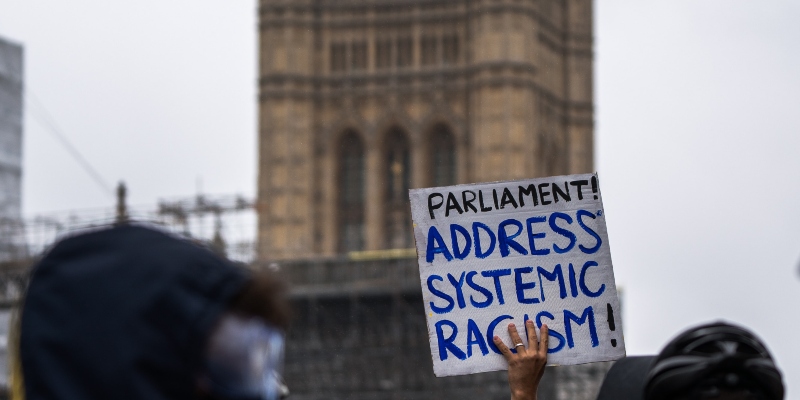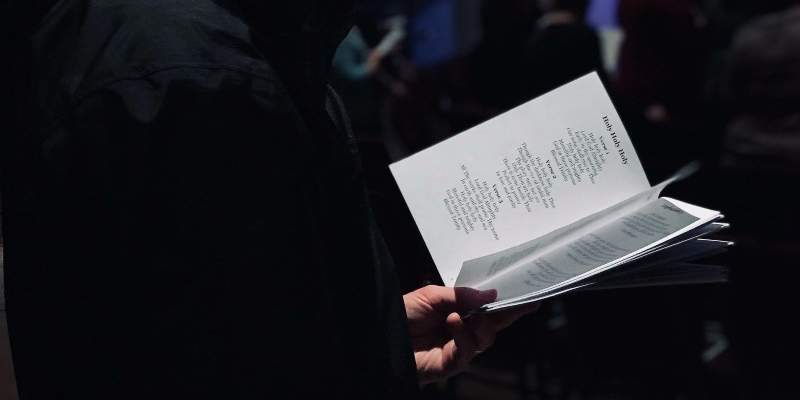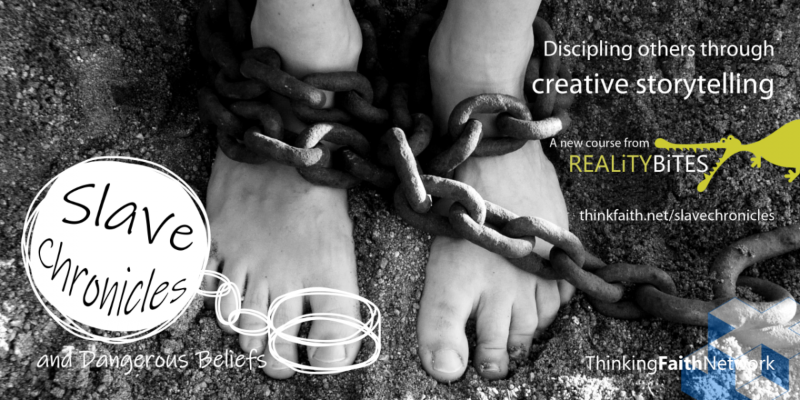June 2021
 Re: Critiquing Critical Race Theory
Re: Critiquing Critical Race Theory
I am a member of the Church of England, which is criticised in this article and would like the right of reply if I may.
I came across this article whilst researching Christian ideas about Critical Race Theory and I find it deeply troubling. What troubles me most about Dr Mike Thomas' article is that it appears to be defending the gospel against a theory that is "hostile to the reconciliation and fellowship demanded by the Gospel", when in actual fact it is stoking division.
This article conflates our identity in Christ with two other things that are entirely peripheral to it - Western civilisation and Liberal values. Critical race theory is described as a threat against western civilisation in starkly apocalyptic terms: "For now, the logic of Critical Race Theory works its way out remorselessly: western civilisation must be dismantled because it is, well…western. No-one can tell where the destruction will end." We are also directed to counterweightsupport.com "a secular organisation dedicated to defending liberal values". While western civilisation and liberal values have certainly grown out of Christianity, neither of them are intrinsically Gospel and both have huge downsides.
As Christians we are called to be born again from above and surely, this new vantage point gives us latitude to both love and critique western civilisation? Western civilisation has been a force for much ill as well as good. It is not unchristian to advocate an amount of dismantling.
Whether he is aware of it or not, by defending western civilisation in such stark terms, Dr Thomas plays into a broader narrative that seeks to stoke culture wars and divide rather than reconcile. According to this story, white people are at risk of drowning in a rising demographic and political tide of non-whiteness and political correctness, it encourages us to defend ourselves and our way of life. This is not the way of Christ, it is the way of fear. We are called to defend a Gospel of good news to all, a self-giving, self-sacrificing Gospel that considers the interests of others above those of ourselves. If those others have historically been damaged by western civilisation via slavery, colonisation, Jim Crow laws, white supremacy, Nazism and apartheid, then we should approach their concerns with humility and repentance, not bombast.
Likewise, liberal values, are stated on the Counterweight website that Dr Thomas directs us to as "social justice including individualism, universalism, viewpoint diversity and the free exchange of ideas". Again, laudable, but not necessarily Gospel. Individualism, that sets me apart from my brothers and sisters and God, as arbiter of my own life choices and morality, free to choose my own way in the world is a strong thread in liberal values, but distinctly un-Gospel.
By holding up these two "opponents" of Critical Race Theory entirely uncritically; by pointing up numerous examples of extreme applications of reverse discrimination; by describing personal experiences of anti-white abuse without acknowledging the racist slurs that many black and brown people experience on a daily basis; this article may make relations between different communities more difficult, rather than bringing them together.
Of course CRT is not perfect, of course it has its extremes, of course we should critique it, but we should also appreciate that it is born out of the scholarship of those who experience racism in all its horror and it therefore deserves our humble, attentive study. As Jesus made clear, repentance is the only entry point into relationship, with God and with each other. I love my neighbour as myself by listening to what they have to say and examining my own heart for sins committed intentionally or unintentionally against them.
I offer these thoughts as, I hope a useful counterpoint to the article and encourage people to engage faithfully with what Critical Race Theory has to say. I believe, like any human system of thought or theory, like Liberalism, it has some useful insights that all Christians will benefit from as we seek to build an inclusive, Christ-centred, community of faith.
Leah Robson
I would like to thank Leah for her thoughtful comments. However, I remain uneasy that Critical Race Theory has made big inroads into church thinking and pronouncements, not least among Baptists, because I cannot share Leah’s view that extremism lies only at its fringes. My assessment is that, although its originators may have had the best interests of disadvantaged people at heart, they have produced an ideology which, in its very nature, is intolerant, destructive and divisive.
Admittedly, CRT starts by asking a legitimate question, namely, ‘Why do ethnic minorities have worse outcomes (in the criminal justice system, education, work, health etc.) than white majorities?’ However, in asking it, CRT makes the huge assumption that outcomes are indeed universally worse, rather than examining each issue on its own merits. It then compounds this initial flaw by putting forward a ‘one size fits all’ answer, namely ‘racism’. Of course, there may well be instances when it would be fair to conclude that racism is to blame for bad outcomes, provided the relevant evidence has been carefully weighed. But to assume, as a kind of article of faith, that racism is always the problem is akin to starting from an assumption that the accused are always guilty. By adopting this as its fundamental approach, CRT invariably a) stokes race-based resentment on the part of some, and race-based defensiveness on the part of others, and b) fails to address what, in many instances, may be the actual causes of poor outcomes: poverty, low expectations, cultural norms, incidence of family breakdown, or whatever. Further, by lumping all non-white groups together under a banner of victimhood, labelled with some such name as BAME, it obscures the fact that outcomes differ widely for different non-white ethnic groups. Some of these outperform their white compatriots in such a way as to render it untenable that all disparities of outcome are due to racism. At the same time, by so lumping all non-white groups together, CRT obstructs specific problems among specific communities being addressed by targeted remedies. It also fixes the whole world into a permanent, artificial ‘them and us’ dichotomy.
Our definition of ‘racial justice’ is relevant here. If we think racial justice means that ‘society’ must deliver across-the-board equal outcomes, we are attributing to ‘society’ more power than it has, or ought to have, in a country that values a measure of freedom for citizens to make decisions for themselves: 100 per cent equal outcomes are only conceivable in highly conformist or totalitarian states.
One of the many problems with CRT is a characteristic looseness in presenting evidence. The use of oft-repeated statistics relating to UK police ‘stop and search’ and deaths in custody, is one of the most irresponsible examples of this carelessness: when thoroughly analysed, these statistics are capable of telling a very different story to the one usually told. But careful analysis is not valued. Space forbids going into greater detail here. If Leah and others are willing to consider a similar conclusion to mine, but coming from a very different perspective, about the seriously damaging nature of CRT, I recommend the correspondence between two eloquent (non-white) women, Ayaan Hirsi Ali and Sarah Haider, found at https://letter.wiki/conversation/930.
Leah suggests that, in speaking up for western liberalism and civilisation, I am putting them on a level with the gospel. Let me cheerfully confess that I regard both liberalism and western civilisation as in need of constant improvement, as all human systems are. With respect to liberalism, as Leah indicates, its individualism it is problematic. Its healthy emphasis on the rights of the individual is not matched by a strong theory of the legitimate demands of the community (family, corporate bodies, local community and nation). In praising liberalism, I had in mind primarily the championing of free thought and speech, and the insistence on the value of reasoned discussion.
Liberalism is part of a much wider, and unique, complex of ever-evolving ideas, values, practices, discoveries, systems, traditions, scholarship, social structure, patterns of thought, economics, music, language and literature, law, education, artistic and scientific endeavour, religion, ethics, politics, architecture, humour, sport, leisure, manners and ‘lessons learned’ etc. that we call ‘western civilisation’. CRT holds that western society is ‘structurally racist’, so it sets about attacking the structure. As it does so, it speaks and acts with little appreciation of the way the structure is supporting an enormous amount of good and providing shelter to billions, of many races.
Leah says it is not ‘the way of Christ’ to defend western civilisation. I don’t really understand why it should be the way of Christ to attack it, but not to support it, albeit not with ‘the love that asks no questions’. In his current TV series, Ade Adepitan overtly and joyfully celebrates ‘Africanness’. We have long trained missionaries to respect and appreciate the cultures they go to. If we believe it is Christlike to show such respect and appreciation for the cultures of others, is it not perverse to be indifferent to our own?
Finally, Leah introduces the fact that, as part of the debate about race, many people are asking what will be the long-term effect of the dramatic change in the ethnic composition of Britain’s population currently underway. Our changing demographic means that, in this 21st century, while Africa will generally maintain its African character, and Asia its Asian character, the character of Britain and Europe will be subject to an unusually intense ‘melting pot’ process. Many find this a troubling prospect. I sense that, while alluding to this question, Leah feels it is really not one that should be asked.
There are broadly two possibilities for Britain’s multiracial future. We may all be enriched, and our nation strengthened, by the mingling of peoples and cultures, which offers us the ability to draw on the best of all: we may be on the brink a new era of creativity and progress. On the other hand, we may become increasingly unstable, fragmented, riven by mistrust, resentment, rivalry and even open conflict. The fact that history and current affairs teem with examples of societies that tear themselves apart, along tribal, ethnic, or religious lines, compels us to take this second possibility seriously, even if we do not regard it as inevitable.
How, then, do we create a peaceful and fruitful national future? It will surely require a huge two-sided effort: on the one side, strenuous efforts to ensure that those who have comparatively recently made Britain their home find it, as they have not always found it, to be a place of justice and opportunity; on the other, that those whose roots in Britain’s land and culture go back many generations do not find their identity and culture threatened, or opportunities curtailed. This is an enormous challenge. CRT, with its commitment to attributing all the problem to, and placing all the blame on, white people, will be more of a hindrance than a help. The two-sidedness of this task must be embraced for it to have hope of success.
We should not draw superficial comfort from the New Testament’s teaching about God in Christ breaking down barriers between Jew and Gentile. The reason it describes this new reality with a sense of amazement is that it takes place in a world where conflict is normal and reconciliation between competing groups is difficult and rare! It is God doing what is impossible, so impossible that it demands nothing less than the blood of Christ, the outpouring of the Spirit and the response of faith to actualise it.
The biggest thing required of the church in a divided world is to live up to its calling to be a united diverse community. Authentic church communities will not build themselves on a basis of voluntary racial segregation or cultural distinctiveness, but rather will demonstrate, by learning, living, praying, caring and serving together, that they have a shared human identity in Christ. This identity will not obliterate their other identities, but rather enhance and transcend them. The blessing of this is likely to spread quite far beyond the church.
No doubt the church should also speak and act in defence of those suffering actual injustice, and so it is not surprising that CRT finds Christian friends, especially among those who have been hurt by their experience of racism. Nevertheless, I would appeal to my brothers and sisters to look long and hard before they take up a contentious and highly politicised ideology as if it were the gospel.
Mike Thomas
 Re: Calling all worship-leaders
Re: Calling all worship-leaders
Thank you so much Colin for your article. I am an organist in an LEP (Local Ecumenical Parntership) and have four hymnbooks in use, each reflecting denominational preferences, and a congregation that loves to sing, but with no singing leadership. We do enjoy some of the newer hymns and worship songs , but find others do not have very easy tunes to pickup, or have to repetitive words and 1 verse. Fine if you've a "choir" to lead or guitars but not all are organ/keyboard friendly. Some of the old hymns our age group grew up with have been omitted from newer publications (some would say, rightly so) but there is comfort and a feeling of continuity from traditional hymns, even with the "thees" and "thous".
I even hear the fellowship using thee etc. when the words have been modernised - such is the power of memory and something to encourage those with dementia.
Yes - let's have meaningful new songs, but don't throw out the old, tested, familiar and loved. There is room for both - and not just the hymns!
I too have attended services where only in house and songs were used, which somewhat spoiled what should have been enjoyable experience.
Annette Walker
 Re: New resource helps you share your faith creatively
Re: New resource helps you share your faith creatively
Having had a glimpse of the TFN Slave Chronicles course, it seems to be the perfect resource to reinvigorate church house groups and to stimulate enthusiasm for discussions about faith, especially as it can be used in face to face meetings or by remote means if necessary.
Anne Burghgraef
It good that BT publishes articles like that of Mark Roques describing the course that has been developed by which young Christians can learn to share their faith. And all the while they will be deepening their understanding of forms of human slavery that are alive and well in our life.
Good stuff.
Bruce Wearne
Good to hear that Mark Roques (in collaboration with Patricia Gray) has published more material to help Christians speak about there faith in real world situations.
It's important to be reminded that there are 'Taken for granted ways of believing and behaving', but of course these ways of believing are direct alternatives to believing in Jesus (and living His way). Just because it was 'Taken for granted' won't cut the mustard when it comes to explaining the behaviour that goes with the belief.
Thanks Mark.
Geoff King
Thanks for pointing out the new resource that Mark Roques and Patricia Gray have developed.
I was a part of the pilot group and found the resource to be excellent.
It will certainly help those who have no idea how to go about witnessing to do be able to do it in a non-cringe worthy way.
Steve Bishop
Signing the words of hymns with our hands
I am pleased that a church in Woking, Surrey, is using Makaton signing to sign the words of praise songs and hymns with their hands, as Covid prevents congregations singing in church. This is such a good idea - as why should we only use our voice to worship? It’s also helpful for people with hearing loss.
I’m a member of “Christian Dance Fellowship of Britain” and I believe that we can use our body in praise. After lockdown ends, it would be good if we could have Christian movement groups. Colourful pom-pom shakers can be used (like USA cheerleaders use.) These are safe if space is short, because they have no stick, and are light and easy to hold as they have a handle. If there is plenty of space than Christian flags could be used. Older people in particular appreciate melodic songs such Graham Kendrick’s “Shine Jesus Shine” and Marilyn Baker’s songs.
Too often today exercise is done to a repetitive tuneless disco beat! Using praise music adds a welcome Christian dimension. Movement improves fitness - and it should be enjoyable, with nobody barking out orders, as can happen in non-Christian exercise classes. Perhaps Christians could start a group in their local area. All you need is a room, chairs, pom-poms and joyful Christian praise songs!
Ann Wills